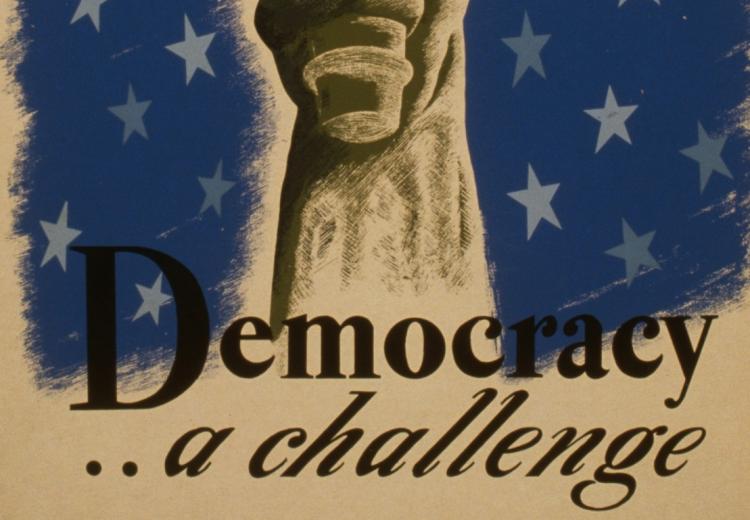Lesson Three. The Power of the Majority over Thought

Vintage WPA poster, ca. 1936-1940.
"The one thing that doesn’t abide by majority rule is a person’s conscience."
—Atticus Finch, To Kill a Mockingbird, Chapter 11
In Tocqueville’s discussion of how the majority in America constrains freedom of thought, he makes some of the most extreme criticisms against democracy. For example, he says “I do not know any country where, in general, less independence of mind and genuine freedom of discussion reign than in America”; and, “there is no freedom of mind in America.”
In this lesson we see Tocqueville drawing on his deep knowledge of European politics and culture to explain how the creative tensions between classes and groups in the hierarchical societies of Europe allows for, and even encourage, greater intellectual freedom than does the relatively egalitarian society of America. He warns Americans of the most dangerous tendency of democracy: the way the majority almost unthinkingly polices the range of thought and casually crushes independence of mind.
Through a close reading and discussion, students will consider Tocqueville’s argument and its validity. They will determine if such troubling contemporary trends as conformism, peer pressure, group think, and political correctness might have their roots in the egalitarian character of democracy.
Guiding Questions
To what extent is a democratic tyranny desirable?
Learning Objectives
Students will evaluate if the majority in a democracy affects an individual's sense of autonomy.
Students will evaluate the extent to which the majority has shaped popular opinion over time.
